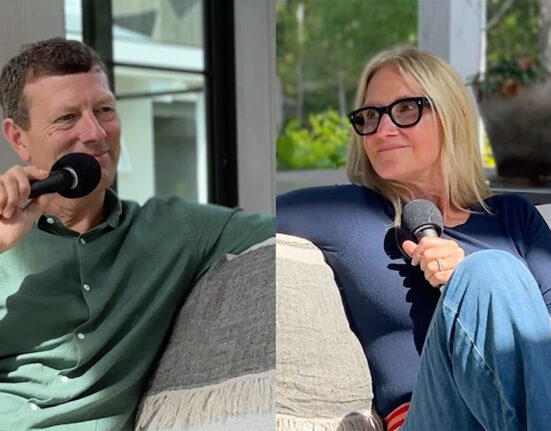Last Updated on May 18, 2023 by Rachel Hall
Introduction
Before Tinder and other dating apps, most couples met through friends or at work. I can see why this happened, although I do think it would probably be annoying to have to see your partner or ex in the workplace. Everyone needs a break now and then. So imagine my thoughts when I found out about Sarah and Matt Davis, two therapists who’ve been married for 25 years.
Who are Sarah and Matt Davis?
I cannot imagine trying to have an argument as a therapist, with a therapist. The idea sends shivers down me and would, I think, make for an excellent psychological horror. However, Sarah and Matt are clearly doing something right, and now they’ve written a book together about building/rebuilding your relationship. It’s called “You, Me and the Space Between Us: How To (Re) Build Your Relationship”. As part of the promotion, Sarah and Matt published a list of things to do to improve the ups and downs of your relationship. So let’s dig in.

- Your partner is a stranger.
Long-term partners might think they know everything about one another, but it’s important to regularly update that information. People grow and change. Being curious about your partner’s interests is a good way to forge a bond and show them you care.
- They are not “the one”.
I’d like to think that most people have realised that destiny isn’t real and that there isn’t a perfect person out there, just waiting for you to arrive. Perhaps that’s my atheism. I think this strips people’s individual agency and means none of their choices has meaning. What I do think is that some people are more compatible and grow closer over time, and this requires actual effort.
- Switch the hierarchy.
This is a tricky one, I suppose. When a couple has children, the priority is to them, then the partner, and then to oneself. There’s nothing inherently wrong with this, but it can lead to a partner neglecting themself and causing resentment and issues down the line. It’s hard, and the thing I would recommend is flexibility and understanding. You know when you’re on an aeroplane and they say that, in the event of an emergency, you have to put your oxygen mask on before helping others? Take that principle and apply it to your life. It’s OK to need some alone time, it’s ok to prioritise yourself, and it’s OK if your partner does that too. As long as your children are safe, of course.

- Three moans a day.
Well, I certainly thought this was about sex. Turns out it’s not – it’s about complaining. The idea is to create a dynamic where you can air grievances without over or underdoing it. You don’t want to bottle everything up, but you also don’t want to spend all of your time offloading onto your partner. Negative emotions are natural, but if that’s all you experience, you might need to look deeper into your mental health and re-evaluate your relationship.
- Admit to hating each other.
I… I actually disagree with this one. If you hate your partner, break up. If your partner makes you feel lonely, depressed or sad, break up. If your partner is abusive, find a safe way to leave them. The counter-argument is that if you’re having a bad day and then your partner does something to make your mood even worse, admit that you strongly dislike them and need a moment. Taking a break away from your significant other is totally understandable and a fairly good way to resolve conflicts because you can then reapproach the issue when you’re feeling calmer. But telling someone you hate them? Doesn’t seem great.
Conclusion
For the most part, the advice from Sarah and Matt Davis seems pretty sound. I suppose after all this time together romantically and in their careers, they probably know what they’re talking about. It’s nice to see that people have good and bad moments in their relationships, especially since we often see a highlight reel on social media which doesn’t actually portray intimate relationships accurately. So enjoy the good moments and don’t let the bad bits last forever. And if you need more information, check out Davis’s book.

Rachel Hall, M.A., completed her education in English at the University of Pennsylvania and received her master’s degree in family therapy from Northern Washington University. She has been actively involved in the treatment of anxiety disorders, depression, OCD, and coping with life changes and traumatic events for both families and individual clients for over a decade. Her areas of expertise include narrative therapy, cognitive behavioral therapy, and therapy for traumatic cases. In addition, Rachel conducts workshops focusing on the psychology of positive thinking and coping skills for both parents and teens. She has also authored numerous articles on the topics of mental health, stress, family dynamics and parenting.








Leave feedback about this